Everyone always talks about the proverbial first appearance of the chicken and her egg, but where are the philosophical wonderings about duck eggs?
Indeed, these wonderful waterfowl have been a part of farms and homesteads as long as chickens, but their eggs are yet to break into popular culture and everyday cuisine. Truly, this is a shame because duck eggs are amazing. I never had a duck egg until two years ago when I began raising them myself, and I had been missing out!
If you have ever seen a carton of the crazy-huge eggs at your local ethnic market, or if you have considered raising a flock of ducks for yourself, you are in for a real treat. Read on to learn about these underused sources of nutrition — from how they taste to how to use them in your kitchen.
Duck Breeds For Egg Production
Well obviously, duck eggs need to come from ducks, but there’s more to it than that. As with chicken breeds, there are some duck breeds that have been specifically bred for optimal egg production. The best and most reliable way to get duck eggs into your diet is to raise them yourself.
Related Post: Free Ranging: The Pros & Cons
I have found (delightfully) that ducks are much easier to raise than chickens. They don’t destroy the ground through scratching, are not prone to many diseases, can forage for the majority of their food if you have the land for it, and are simply fun creatures to share in your life.
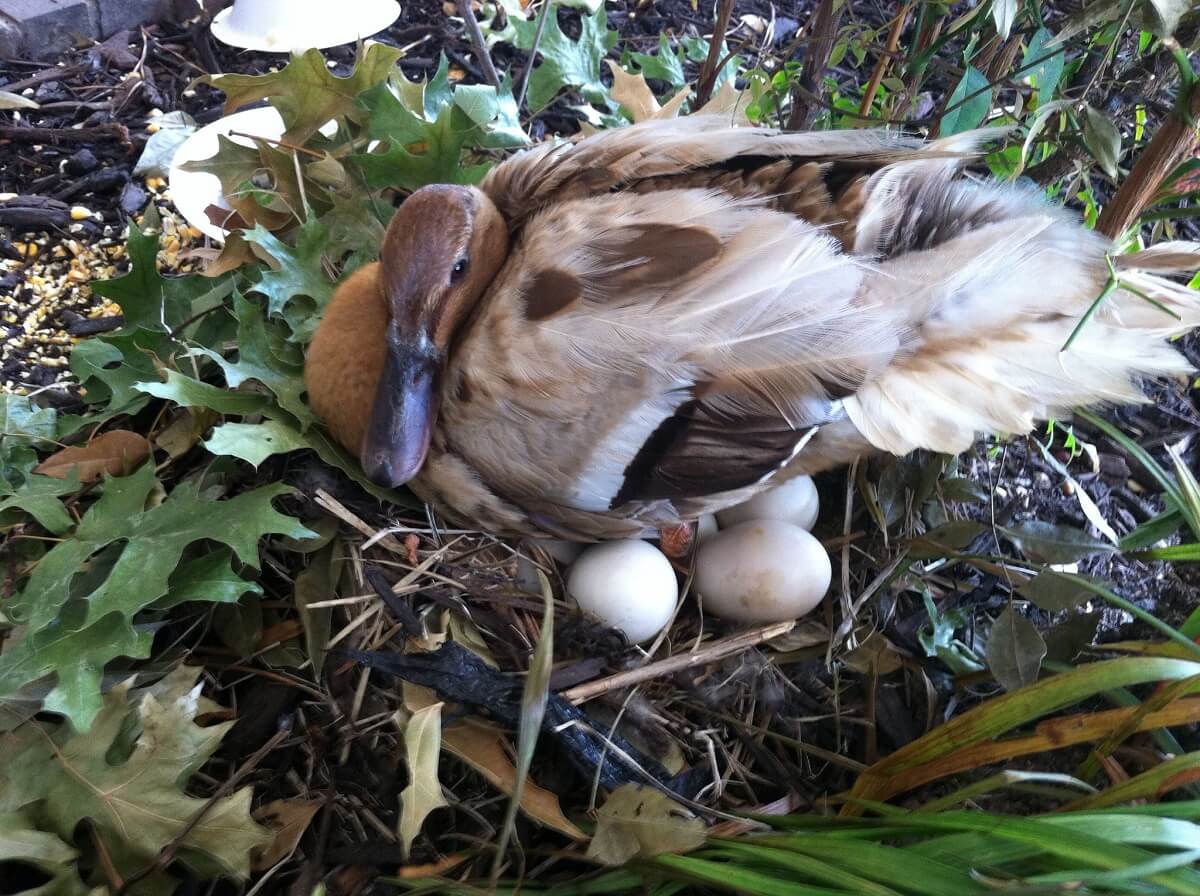
Some duck breeds lay eggs year-round with no need for supplemental lighting. If you have enough area for chickens, then you can keep a few ducks — and you should! Just make sure you don’t keep a single duck. They are social animals, and you should have at least three females to keep each other company.
Additionally, though you don’t need a drake to get hens to lay eggs, if you do keep one, make sure he has enough ducks to balance his springtime affections. Some breeds have very strong sex drives, so at least three females to a male will keep the poor ducks from being overbred.
Here are some breeds among the many that exist, if you’re considering adding delicious duck eggs to the menu.
Runner Ducks
Runner Ducks are among the most prolific egg layers, though Campbells (the next breed I’ll talk about) are certainly fighting them for that title. These upright, quick-footed ducks aren’t your typical fat waddlers. Sometimes described as “wine bottles with legs,” they really do run around like animate bowling pins.
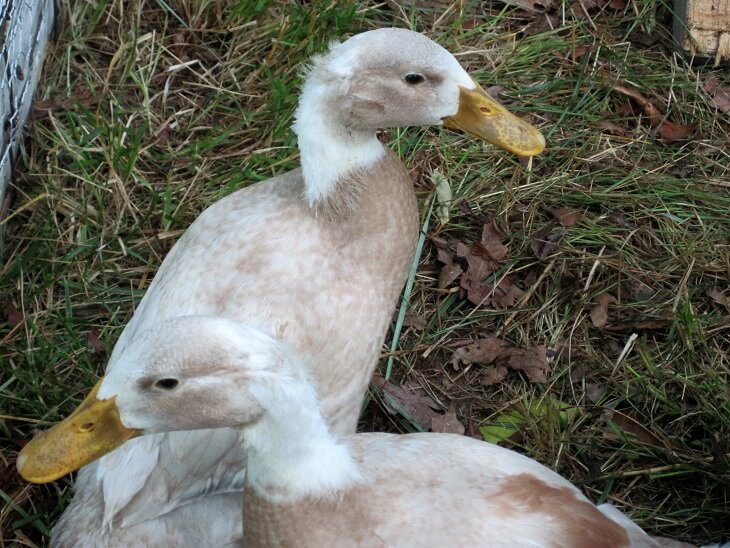
They are typically terrible mothers (as many of the most prolific egg-producing poultry) so you should plan on brooding them yourself. They’ll produce around 250 to 300 eggs through the year, but they don’t bother with making nests and will lay them basically wherever they fall out. Confining them overnight will usually make your morning egg hunt a little easier to manage.
Their eggs are usually white, though every once in a while, you may get a blue-tinted one from a dark colored duck.
Khaki Campbells
Khaki Campbells were designed with big, meaty bodies and egg production in mind, so they’re a good dual-purpose breed. Again, with high egg production often comes low broodiness, so don’t expect to hand out any mother-of-the-year awards to your Campbells.
They produce slightly smaller eggs than other duck breeds, but they more than make up for that in numbers, and usually lay around 250 to 340 off-white eggs a year.
Magpies
Black-capped Magpies are a bit more uncommon, and that’s a shame! Though they are on the smaller end of the duck spectrum, these attractive fowl are some of the best foragers you can buy, and they convert that free feed into 220 to 290 eggs a year. Egg colors range from green, blue, and white, depending on their breeding lines.
Cayuga
Iridescent Cayuga ducks may lay fewer eggs than most other breeds — usually 100 to 150 a year — but they do retain some of their wild instincts and are sometimes willing to brood their own eggs. As a bonus, you may even end up with a duck that lays black eggs at the beginning of her laying cycle every year.
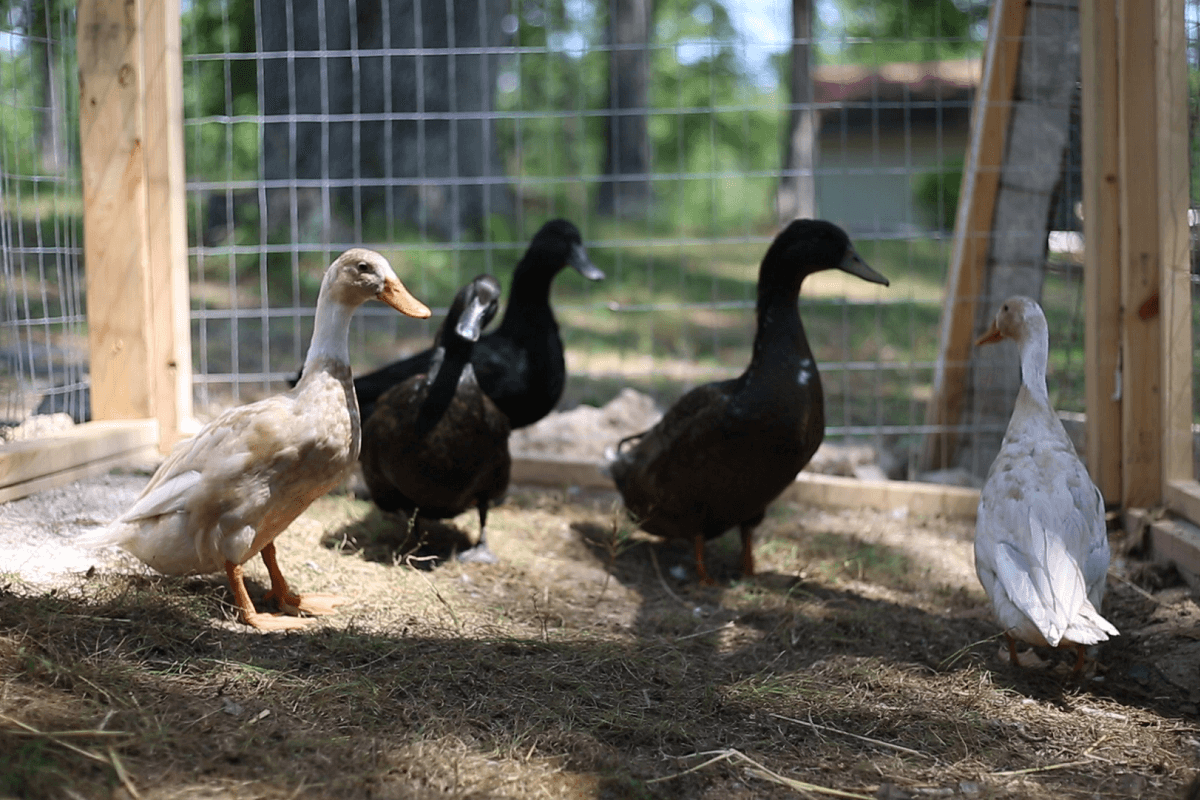
If you’re looking to sell eggs on the market, this novelty may increase the price of your eggs dramatically. Even if they don’t end up black, they’ll probably run an attractive green or blue hue, so they’ll certainly be eye-catching.
Muscovy
Choose-any-color Muscovy ducks are a different type of domesticated duck than any other, and as such, their habits are a little different, too. I’ve found that Muscovy ducks benefit from having a dedicated laying area. Even if it is simply allowing them to have a deep nest of clean straw or a simple nesting box.
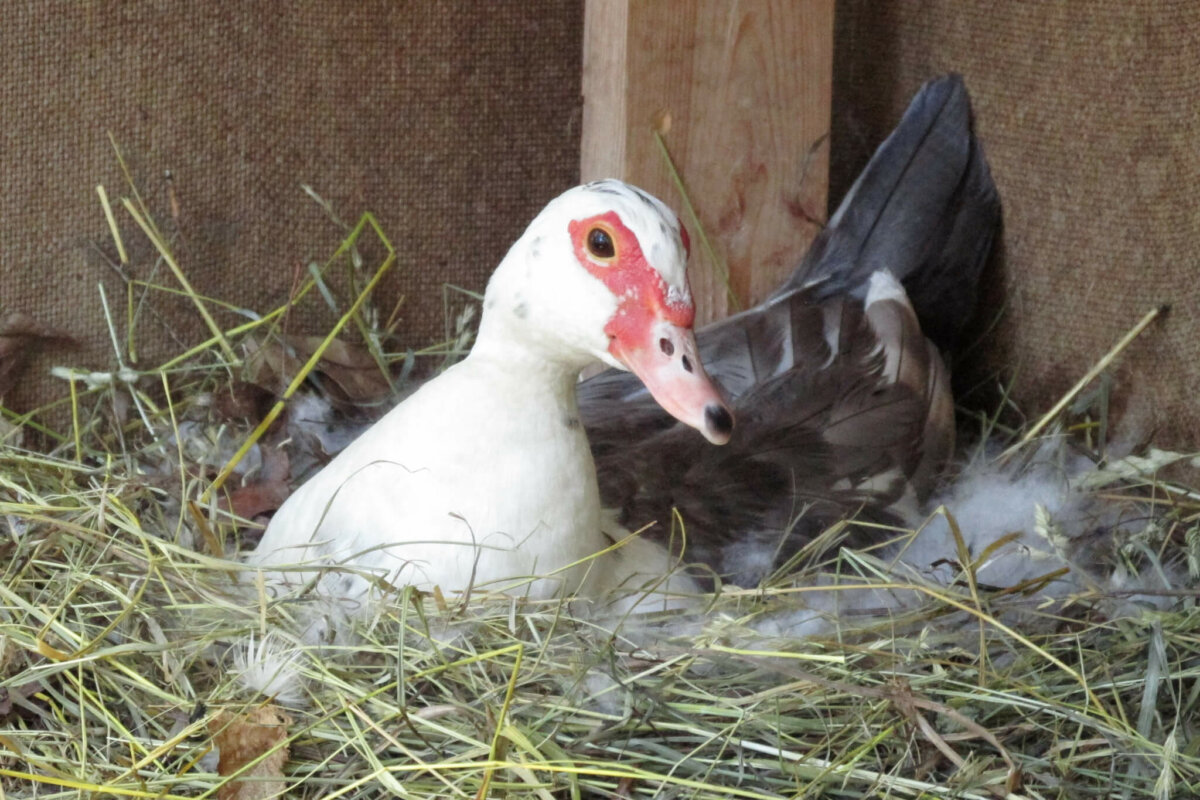
Muscovy ducks are more dedicated mothers than most other duck breeds and will usually lay their eggs in a carefully-tended clutch rather than randomly around the homestead.
Related Post: Raising Muscovy Ducks And Why You Probably Want Them
I find that my Muscovy ducks lay far cleaner eggs than my other breeds. They tend to produce fewer eggs — usually about 60 to 120 creamy-white eggs a year — but if you have a few ducks, there will be more than enough super-jumbo eggs to go around.
Duck Egg Taste
Duck eggs are very rich, and while they taste unmistakably like an egg, there’s something extra there that’s hard to describe. Some people explain it by saying their eggs taste “eggier” than chicken eggs, but you’ll have to try one yourself to really get it. In baking, I find that this stronger flavor is not noticeable at all.
It may seem contradictory (since ducks are water birds), but duck eggs have less water content than chicken eggs. This makes a plain, pan-fried duck egg more rubbery in texture than the chicken eggs you’re used to eating. I’ve never been bothered by this difference, but if you’re a texture person, you might save the duck eggs for baking and the chicken eggs for frying.
Are Duck Eggs Healthy For You?
This is a subjective question because it totally depends on what the animal eats. Confined ducks, who are fed only pellet feed and not allowed to free range and forage, will produce eggs far nutritionally inferior to those of a healthy, happy, pasture-wandering animal.
However, any egg that is produced by an animal allowed to eat and live the way it was designed to eat and live will be healthier for you, and duck eggs are no exception.
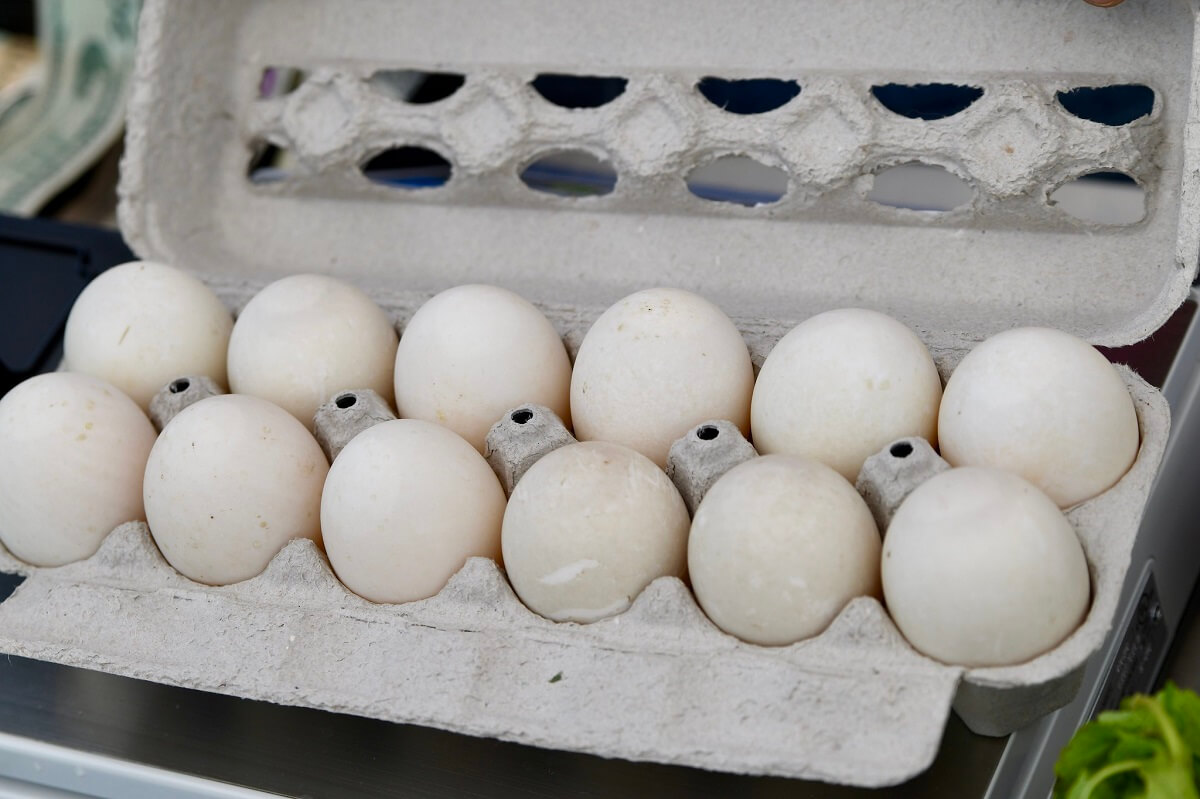
I absolutely hate parsing down an infinitely complex, whole food into isolated nutrients like cholesterol or calorie content. There’s so much more going on with nutrition. If you must have numbers, this website gives a pretty good breakdown.
Related Post: Egg Substitutes For When The Chickens Have Stopped Laying
Suffice to say, if you are eating foods that are grown according to their design, produced organically, and free of any added chemicals, you can bet they’re healthier. Eggs produced by a free-range duck on your own homestead, collected fresh that morning, and cooked with vegetables still warm from the sun on the garden are probably among the healthiest things you can eat.
Chicken Eggs Versus Duck Eggs
The first difference is actually finding the things. Unlike your chickens, who are probably laying their eggs in dedicated nesting boxes, your ducks are a little more adventuresome. If your ducks free range (which is 100% recommended), they may lay their eggs wherever they please, resulting in a daily egg hunt if you aren’t in tune with your birds’ habits.
I remedy this by keeping the majority of my ducks (there’s always the white one who insists on spending the night in the pond) in a duck house overnight. Ducks typically lay eggs very early in the morning, so they’ll probably have laid their gifts by the time you release them for the day’s foraging.
Related Post: 19 DIY Duck House Plans
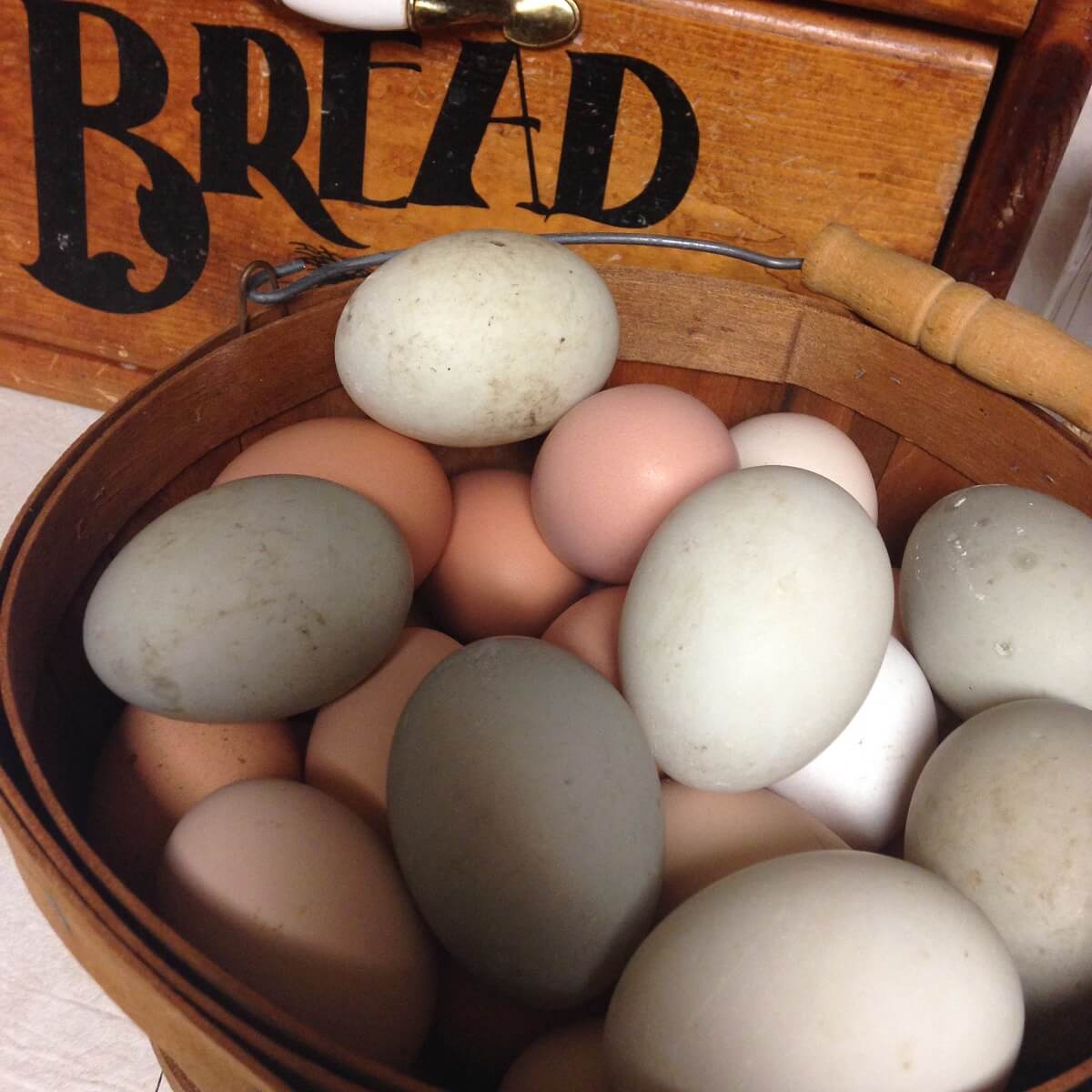
In the field, and even in the duck house, duck eggs are typically pretty dirty. Ducks don’t care about the presence of mud or rain, and like to conceal their nests with grasses and leaves if they have any mothering instincts. Or, if they are like my terrible mother Runners, they basically let their eggs fall wherever they are, even if it’s a mud puddle. As a result, very fresh duck eggs can end up looking not very fresh. Wash the eggs before you use them in a recipe, and in the meantime, store them in a basket that you don’t mind getting a bit dusty.
Related Post: What Do Ducks Eat?
Also, duck eggs are huge. A single egg packs more of a nutritional punch than a chicken egg due to its size alone. It also contains more protein and fat proportionally which I see as a good thing. I have found, in my baking, that one duck egg can equal two or even three chicken eggs.
The yolks may seem somewhat shockingly large when you see one for the first time, and they are delightfully firm. That high fat level and protein content make them a baker’s dream. You’ve never tasted creamy custard until you’ve had duck egg custard.
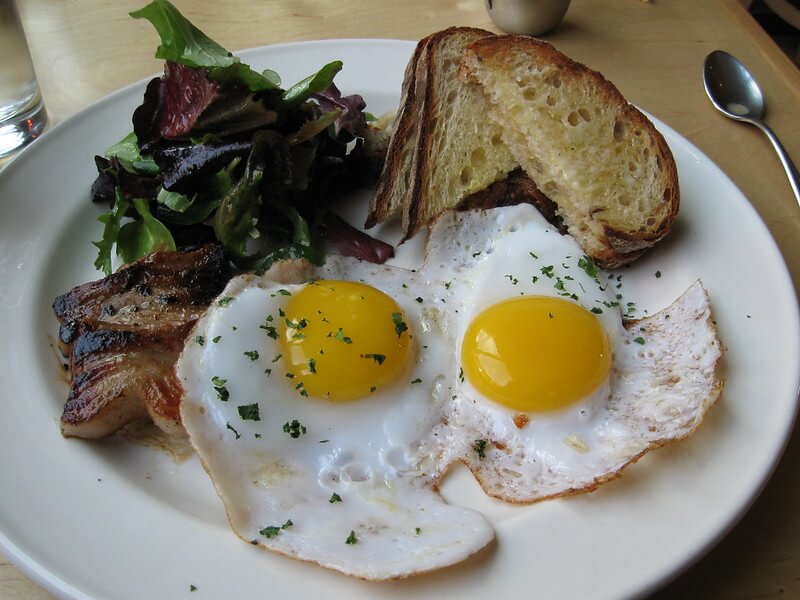
Duck eggs also have really thick shells. REALLY thick. In order to crack one, you’ll probably have to take several good whacks at it on the side of a cast iron pan. I also find that the inner membrane is a lot more substantial than the thin one in a chicken egg, meaning that even when you do have the egg cracked, it still may require some more handling to actually open it! The benefit of their thickness, however, is that duck eggs, safe in their Fort Knox of a shell, can store for a long time.
As a side note, if you do raise your own duck eggs, there’s no need to refrigerate them. Like homegrown chicken eggs, they are laid with a protective bloom over their surface that naturally keeps them fresh. Store bought eggs have no doubt had that beneficial layer washed away, so if you purchase store eggs, be sure to keep them in the refrigerator.
Finally, if you have an allergy to chicken eggs, take a chance and give duck eggs a try. Some people with chicken egg allergies find they can consume duck eggs with no problems.
How To Use Duck Eggs
Use duck eggs exactly the same way you use chicken eggs. They’ll take a bit of a learning curve as you adapt your chicken egg recipes to the huge size of a duck egg, but you’ll figure it out the more you bake. I adore using them in pies, frittatas, and custards, and (in my humble opinion) they make some of the most delectable crepes found this side of the Mississippi.
Be sure to not waste those eggshells, either. Crush them as fine as you can, and feed them to your ducks to add the material back into their systems for the next set of eggs. The shells can also enrich garden soil with valuable minerals and calcium, but I hate the thought of robbing my ducks of their shells permanently.
If you find yourself overwhelmed with duck eggs (an enviable position), you may also make a little side income by selling them at your local farmer’s market or roadside stand. Though it’s hard to sell a dozen chicken eggs for more than $4, duck eggs can command higher prices. I’ve heard of duck eggs selling for as much as $2 an egg!
I could carry on about ducks and their eggs for a long time, and I know I’m not alone. Any other duck egg appreciators out there? What’s your favorite recipe for using these super-huge, hard-shelled, totally nutritious eggs? What breeds do you recommend for egg production? Let me know below.








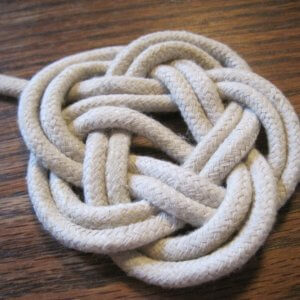
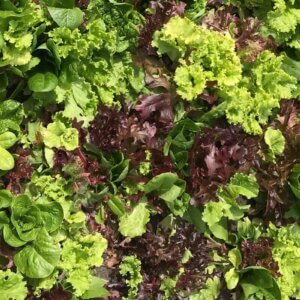


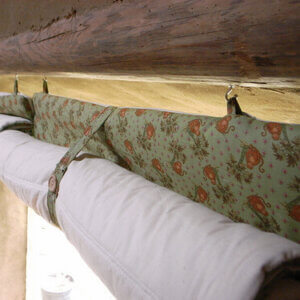








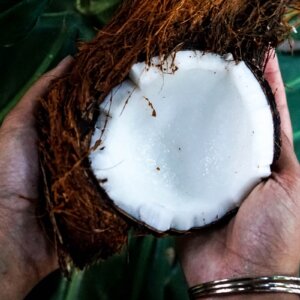

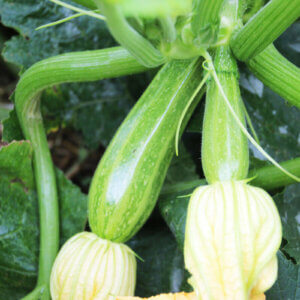
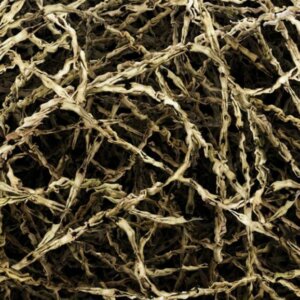









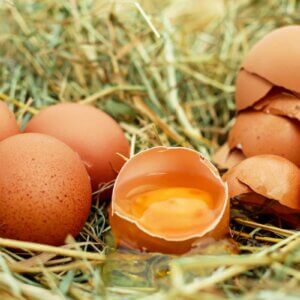


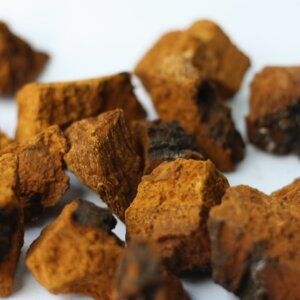

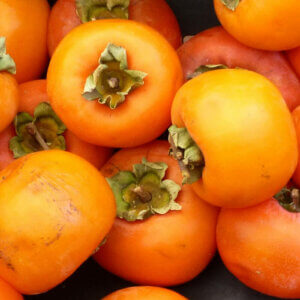


Where is the best place to buy duck, I live near Athens, tn.
Where to buy duck eggs
When I lived in the city, I saw them sold in Chinese groceries and International groceries. I imagine you could find a new Friend-With-Ducks if you ask around your local Farmers’ Market, too.
Photo/Attachment:
Khaki Campbell are awesome egg layers! My buff ducks are also laying…still waiting on my sweedish blues. I have 2 drakes that are a pain! Trouble makers for sure!
You’re not kidding about laying anywhere… I think It’s amazing that they survive actually… Because I find them all over in plain sight, in high traffic areas, and quite often, the bottom of the pond!! (Yes, eggs drown too)